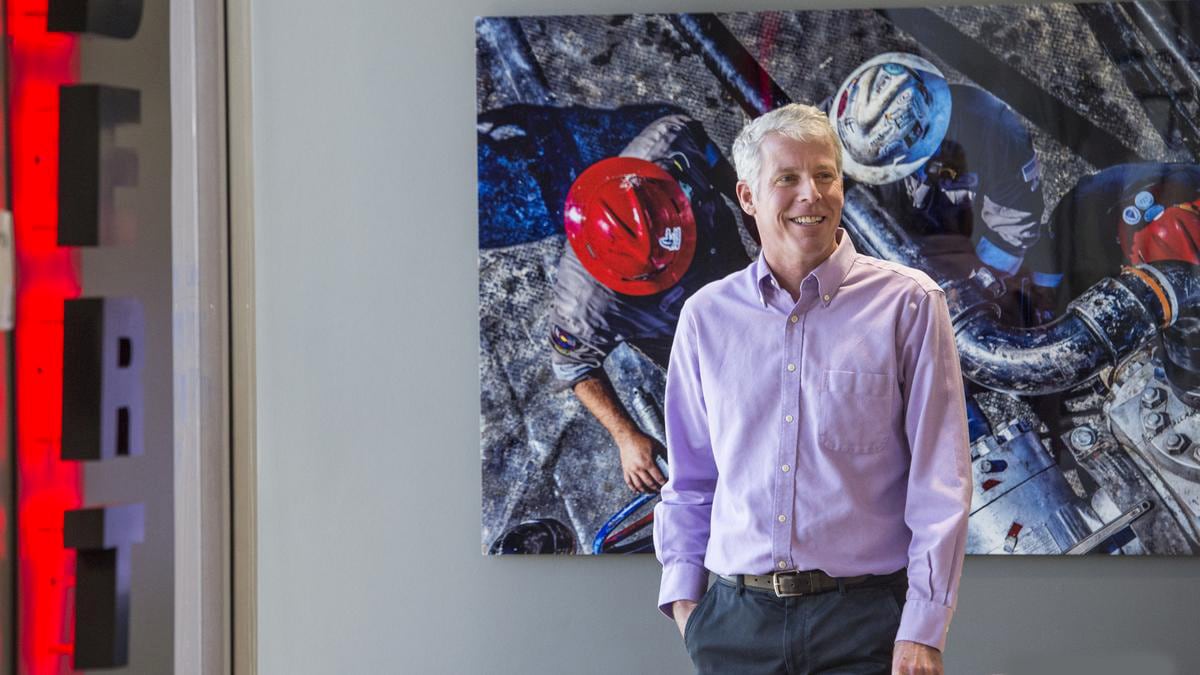Friedrich Merz (Brilon, 69 years old) has everything to be a bad candidate for the German chancellery. Too arrogant, too conservative. Billionaire and owner of a small plane. Even more: former leader in Germany of BlackRock, the largest investment fund in the world, associated in the image of many of his fellow citizens with unbridled global capitalism. An old acquaintance of his country’s politics, at the end of the nineties he was already in the front row, but he was never particularly loved, not even in the ranks of the Christian Democratic Union (CDU), the party of his entire life and which, according to It was said at the time that he considered leaving after breaking up with popular Chancellor Angela Merkel. A has-beenhe was described until not long ago, using the anglicism that describes someone who lived his glorious moment a long time ago and who will not return. Despite his seniority, he has never become a minister. Parliamentary experience: decades. Also in the private sector. But government experience? Zero.
With all these ingredients, one might think that, when in September the CDU and its sister party, the Bavarian Christian Social Union (CSU), chose Merz – president of the first formation and head of the parliamentary group – as their candidate, they were taking incalculable risks. It’s not like that. There is already a date for the early elections—February 23, seven months ahead of schedule—and this man with a straight profile and 1.98 meters tall is the undisputed favorite.
He has-been,that after suffering several setbacks in the internal struggles for power in his party, he abandoned politics for 12 years to dedicate himself to business, returned in the twilight of Merkel and today sees himself closer than ever to the ambition that guided him since he was young. . All the polls indicate that, if the elections were held now, the CDU-CSU would win them with more than 30% of the votes. Christian Lindner, liberal leader, says it months in advance: “The race for the chancellorship is decided,” and Merz—who has closed the door to future collaboration with the extreme right—will be the chancellor “with complete certainty.”
Those who know him define him as a classic Christian Democrat politician of his time. The candidate to succeed the social democrat Olaf Scholz grew up in the prosperous, democratic and free side of the Germany divided in two by the Cold War. He grew up in a Catholic family of local notables (his father was a judge; his mother, the mayor’s daughter) in Brilon, in the boring province of the years of the economic miracle. A town of 25,000 inhabitants in the Sauerland, in the center of what was once West Germany. The Germany of comfort and small and medium-sized businesses, a place where people “with their feet on the ground are guided by a clear compass and have clear opinions, and are stubborn,” says Jutta Falke-Ischinger, co-author of a biographical essay on Merz entitled Der Unbeugsame (The unbreakable) and, like him, originally from the Sauerland.
Ideologically, Merz is a disciple of the gospel of Ludwig Erhard, father of the economic miracle after the zero hour [1945andHelmutKohlchancellorbetween1982and1998theyearsinwhichMerzenteredandestablishedhimselfasaparliamentarypromiseFirstinBrusselsandStrasbourgTheChristianDemocratdeputyintheBundestagNorbertRöttgenexplainstoELPAÍSthatthesearefundamentalyearstounderstandMerz:theyearsofthecreationofthesinglemarketandtheEuropeanCommissionofJacquesDelorsmarkedtheyoungMEP
Röttgen defines it like this: “Three elements are important in it. First, the social market economy. Second, he is a Europeanist. And third, he is an Atlanticist.” Said like this, these traits can mean everything, or nothing. The CDU is what in Germany is commonly called Volkspartei—a popular party encompassing currents ranging from Christian socialism to the hard right, but with a common attachment to Europe and NATO—and Merz is a pure representative of its conservative and liberal wing.
Falke-Ischinger defines Merz as a politician “rather law and order” —he says it like this, in English: law and order— and a supporter “of the State having a smaller role” who claims the spirit of an old Kohl slogan: “Work must be worth it again.” That is, the idea according to which the welfare state is too robust in Germany and some subsidies discourage work. Hence, for example, the criticism against Bürgergeld or citizen income, the benefit received by those who have exhausted unemployment and lack other means of subsistence.
“Of course we will help those who really need help,” says the candidate in an interview with the weekly Stern. “But whoever can work must work and, if not, will not be eligible for comprehensive State aid.” Regarding asylum seekers who, despite expulsion orders, remain in the country, he declared this summer: “They want to receive all the benefits, all the health care. “They go to the doctor and get their teeth fixed, and meanwhile German citizens can’t get an appointment.”
Merz’s career, nor his shock at abandoning politics to go into the private sector (“it’s time to make money,” he then told his friends, according to the biography) cannot be understood without the rivalry with Merkel. She had grown up in East Germany and was a woman: an outsider in Merz’s western, masculine CDU, but she prevailed over him in the race for power and ruled for 16 years.
Now, Merkel’s legacy is in question and she is considered too centrist in her party. He is criticized for the absence of reforms or the open-door policy in the midst of the 2015 immigration crisis. The antipathy between the two was ideological and personal. Today Merz presents himself as the antithesis of Merkel: a guy with clear ideas and decision-making capacity, a black-legged conservative in the times of Donald Trump, Vladimir Putin and Viktor Orbán. And so, three years after a social democrat took over from the chancellor, returning the Christian democracy to power.








